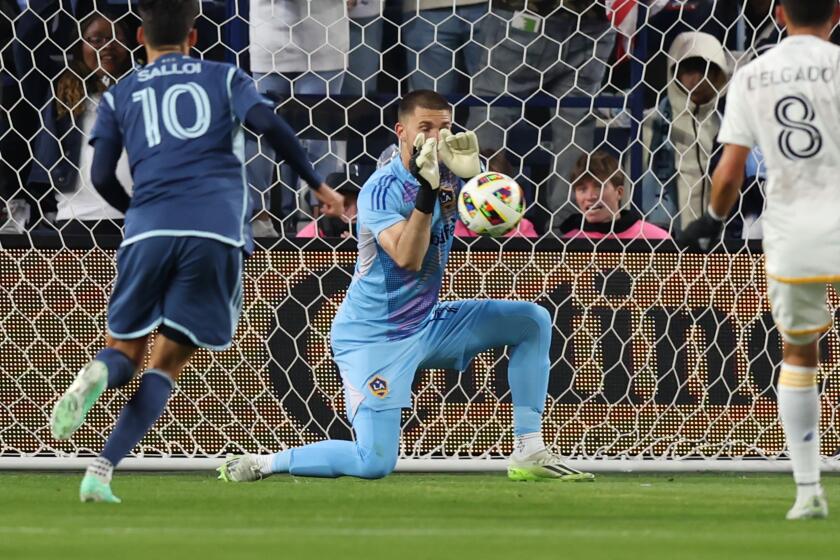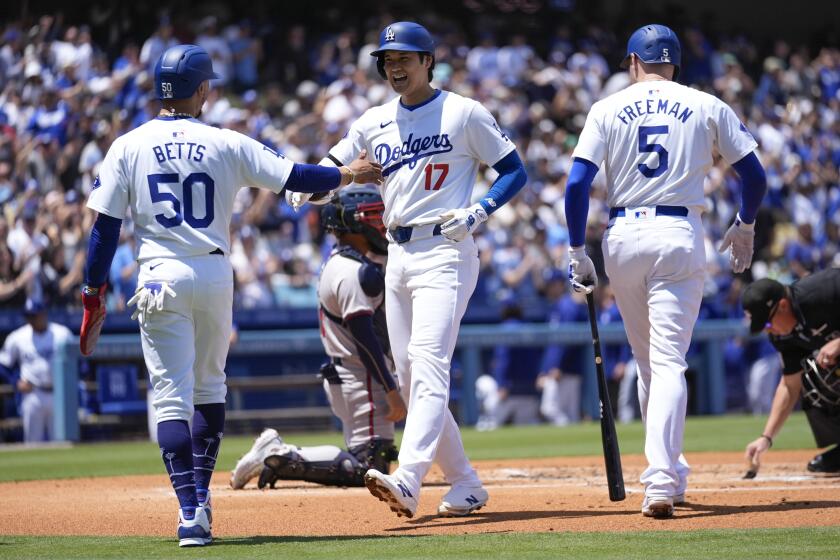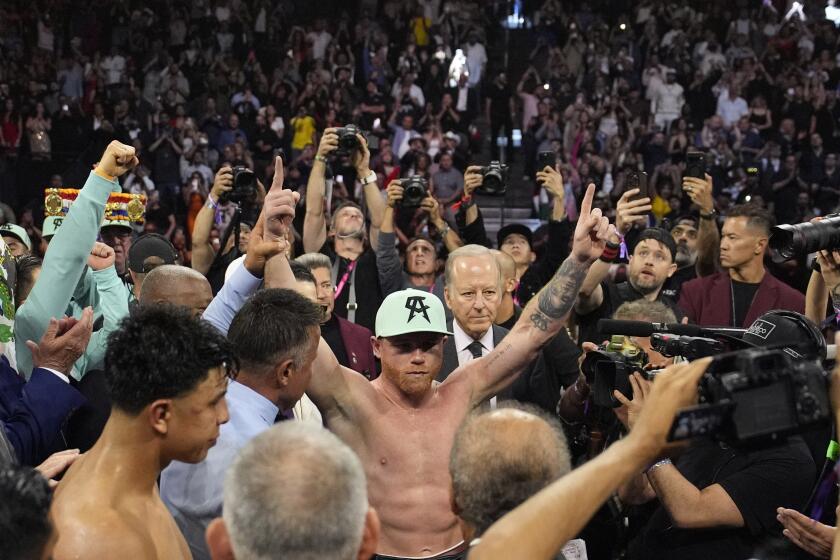Judge orders end of NFL lockout
NFL players saw the labor fight tip in their favor Monday as a federal judge ordered the league to end its lockout, meaning football will continue while owners and players bicker over how to divide more than $9 billion in annual revenue.
U.S. District Judge Susan Richard Nelson in St. Paul, Minn., ordered an end to the 7-week-old lockout, saying she believed the players’ argument that the situation was causing irreparable harm to their careers.
“It’s one step closer to trying to do what we brought this case for — to make sure that there’s football, that players can play and fans can watch,” players attorney Jim Quinn told The Times in a phone interview.
Now, the ball is in the court of the NFL, which will attempt to get a stay of the ruling — keeping the lockout in place — from Nelson. The NFL already has filed a notice with the U.S. 8th Circuit Court of Appeals in St. Louis, questioning whether the district court exceeded its jurisdiction. . A lockout is a vital leverage tool for the owners, because players are much more likely to be willing to negotiate a new labor agreement if they’re being denied paychecks in the interim.
“We believe that federal law bars injunctions in labor disputes,” the NFL said in a written statement. “We are confident that the 8th Circuit will agree. But we also believe that this dispute will inevitably end with a collective bargaining agreement, which would be in the best interests of players, clubs and fans. We can reach a fair agreement only if we continue negotiations toward that goal.”
The ruling will not affect this week’s draft, which was put in place as the last piece of the now-expired CBA. But because there is no longer a players’ union — the NFL Players Assn. decertified as a union last month — the league is in peril of running afoul of antitrust laws with each decision the owners make collectively.
“Right now they’re on very risky ground,” said Quinn, who co-chairs global litigation for Weil, Gotshal & Manges.
If the league does not get its stay and the lockout is lifted, the NFL probably would put in place the rules under which it operated last season — seeing as those rules were collectively bargained for with the players, when those players were represented by a union.
Stanford law professor William B. Gould IV, former chairman of the National Labor Relations Board, said the decision for the players is “huge” if it holds up to appeal.
“If it’s sustained, this reduces the leverage of the owners immeasurably,” he said.
However, an observer with knowledge of the NFL’s legal strategy but not authorized to speak publicly about it said owners had been bracing for a loss at this level, but are confident that the 8th Circuit will side with them.
The 8th Circuit, based in St. Louis, is known to be very conservative and often rules in favor of employers. Nine of the 11 active 8th Circuit judges were appointed by Republican presidents.
Gould said that when he was NLRB chairman and took action against employers, the 8th Circuit frequently “was quite sympathetic to employers” and “they would reverse us quite frequently.”
Added Gould: “I can’t think of a court in the United States it would be better for an employer to be before than the 8th Circuit.”
In gearing up for a major legal battle, the NFL last month hired two of the country’s most prominent and successful litigators, David Boies and former Solicitor Gen. Paul Clement. Quinn and Jeffrey Kessler head the legal team for the players.
It’s not up to the 8th Circuit to retry the case, only to decide whether Nelson applied the law correctly.
“The judge very clearly found irreparable harm, and [the NFL is] not going to seek to overturn that,” Quinn said. “The NFL didn’t put on any evidence against irreparable harm, anyway. So there’s no basis for overturning that. The only issue is the legal issue.”
Asked how in general he would interpret Monday’s ruling, Quinn said: “Right now, we’re feeling a little better than NFL owners are.”
twitter.com/LATimesfarmer
More to Read
Get our high school sports newsletter
Prep Rally is devoted to the SoCal high school sports experience, bringing you scores, stories and a behind-the-scenes look at what makes prep sports so popular.
You may occasionally receive promotional content from the Los Angeles Times.







